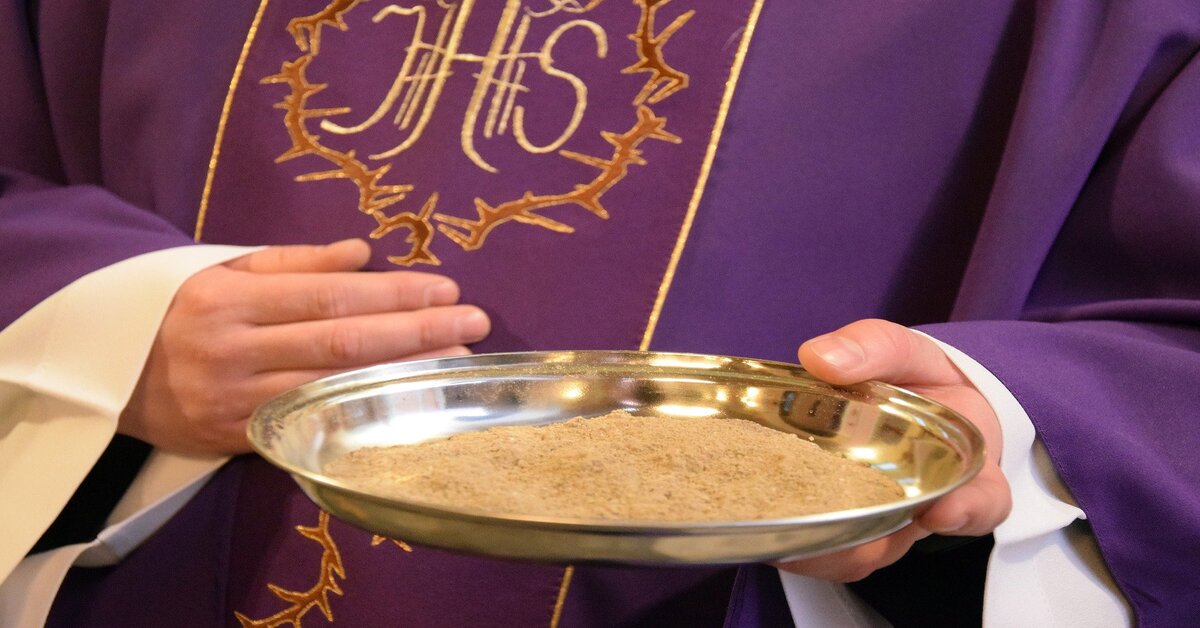What is Ash Wednesday? Because Christians celebrate it
Each year, Ash Wednesday marks the beginning of Lent and is always 46 days before Easter Sunday. Lent is a 40-day season (excluding Sundays) characterized by repentance, fasting, reflection and finally celebration. The 40-day period represents Christ's time of temptation in the wilderness, where he fasted and where Satan tempted him. Lent asks believers to set aside a time each year for a similar fast, marking an intentional season of focus on Christ's life, ministry, sacrifice, and resurrection. Who celebrates Ash Wednesday?
Have you ever noticed how once a year, usually in February or March, there are many people walking with an ash cross on their foreheads? You probably knew it had something to do with Lent, but you weren't sure why the ash cross was meaningful. Or maybe you grew up in a Catholic or Protestant church that celebrated Ash Wednesday services every year, so you're already familiar with the service, but aren't too sure about the history of Ash Wednesday and Lent and what they have to do with. dealing with the Christian faith. If you want to know more about this important day in the liturgical calendar and why so many celebrate Ash Wednesday and Lent Often called Ash Day, Ash Wednesday begins Lent by focusing the Christian's heart on repentance and prayer, usually through personal and community confession. This happens during a special Ash Wednesday service.

What is the meaning of Ash Wednesday and What Happens? During mass (for Catholics) or worship service (for Protestants), the priest or pastor usually shares a sermon of a penitential and reflective nature. The atmosphere is solemn: many services will have long periods of silence and the faithful will often leave the service in silence. Usually, there is a sensitive passage of Scripture, usually centered on confession, read aloud about the leader and the congregation. Participants will experience common confession, as well as moments when they are prompted to silently confess sins and pray. After all this, the congregation will be invited to receive the ashes on the forehead. Usually, like the priest or the shepherd, he will dip his finger in the ashes, spread them cross over his forehead and say: "From the dust you came and from the dust you will return".
Where did the ashes come from and what do the ashes symbolize? In many congregations, ashes are prepared by burning palm branches from the previous Palm Sunday. On Palm Sunday, churches bless and distribute palm branches to attendees, a reference to the Gospel account of Jesus' triumphal entry into Jerusalem, when onlookers placed palm branches in his path. The ashes of this holiday symbolize two main things: death and repentance. "Ashes are equivalent to dust and human flesh is made up of dust or clay (Genesis 2: 7), and when a human corpse decomposes, it returns to dust or ashes." “When we step forward to receive ashes on Ash Wednesday, we are saying that we are sorry for our sins and that we want to use the season of Lent to correct our flaws, purify our hearts, control our desires and grow in holiness. so we will be ready to celebrate Easter with great joy ”. With this focus on our mortality and sinfulness, Christians can solemnly enter the time of Lent, while also looking forward with greater anticipation and joy to the message of Easter and Christ's final victory over sin and death.